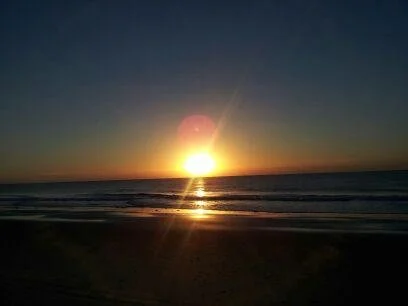Black Plastic Bags
/46 years ago today, I drove over to a hospital where I was handed a large black plastic bag full of my father’s things. He had died the night before, and the nurses had collected all the notes and cards, his watch, wedding ring, and the clothes he wore when he was first checked in. I can still feel the weight of the bag, remember the long walk down the hall, and hear the thud it made when I put it in the trunk of my car (the car he and my mother bought me for graduation that he never got to see). 46 years later, the moment lives on. 46 years later, the sadness remains. “Surely Dad’s life was more than this,” I sighed.
Who are we, really? Are we the houses we live in, the careers we choose, the bank accounts we build, the possessions we accumulate? These are familiar questions but remembering the black plastic bag of my father’s things, it challenges me to wonder what, in the end, will be put in my plastic bag and what, if anything, will be left behind once I’m gone.
I have three dear friends who are awakening this morning and packing up their parents’ homes. Unlike mine, their parents lived long, vibrant lives, and yet this moment for them is just like the one I experienced long ago. It can’t help but make them wonder, as I did, who exactly were their parents? What remains in this world of their lives?
It’s enough to make me shake my head as I think of all the striving we do to make something of our lives. For most of us, we focus on things that will one day be put into a black plastic bag, but we are all more than that. We leave behind the people we were to others. We leave the kindness we offered as well as the pain we caused, our successes and our mistakes. All of it belongs, all of it remains . . . and none of it can be put in a black plastic bag.

